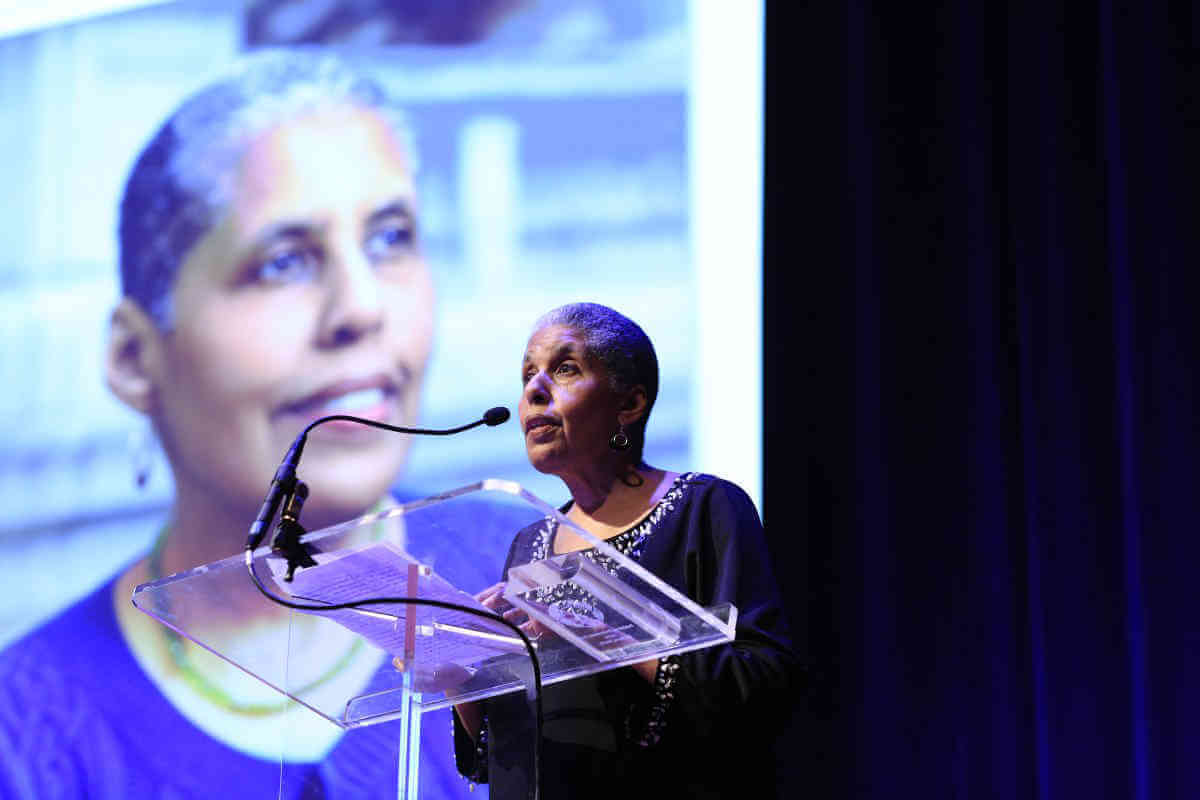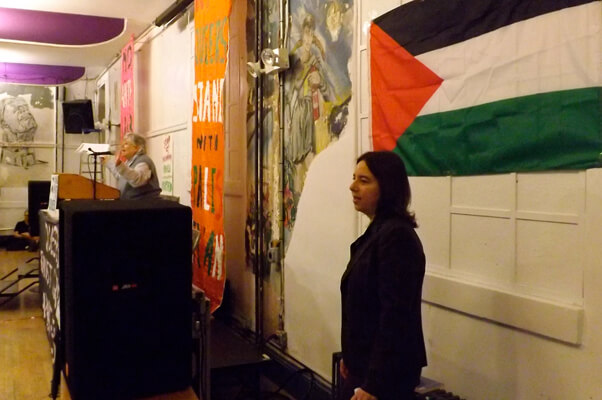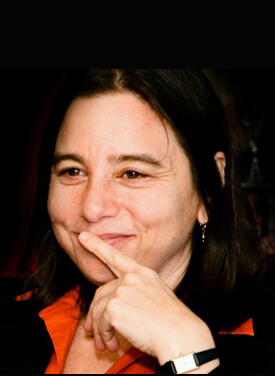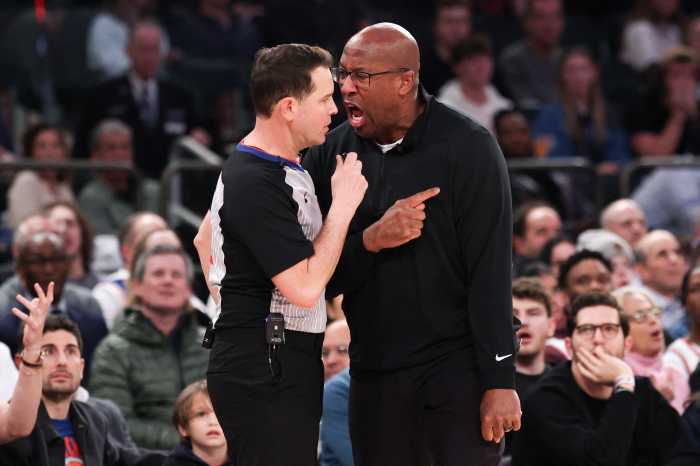Nearly all the winners at the 31st Lambda Literary Awards said how surprised they were. But when they said thank you, they were eloquent with gratitude for a community whose validation means more to them because they are a part of it.
The Lammys were held June 3 at NYU’s Skirball Center. Nominees, presenters, and lovers of queer writing — and of queer writers — thronged the lobby before the ceremony. Clad in gowns short and long, tailored suits, fascinators and tiaras, they posed for photos and exchanged greetings, gossip, and good wishes before hurrying into the auditorium in time for the 7 p.m.-ish curtain.
Writer and scholar Karla Jay, a founding member of the Gay Liberation Front, which as a group is a grand marshal at this year’s LGBTQ Pride March, told how she’s been in demand for appearances in person and for films.
“It’s like being on a book tour without the book,” she said. She recalled the first Pride March and talked about preparing for the 50th:
“I persisted. I survived,” she said, also quipping, “I was checking the ‘In Memoriam’ list to make sure I wasn’t on it.”
“I’m writing a book on the history of ACT UP for FS&G [Farrar Straus and Giroux],” novelist, activist, and many-time Lammy nominee Sarah Schulman said. “I’m up to page 1,687.”
The ceremony was hosted by chanteuse Justin Vivian Bond and directed by Charles Rice-Gonzalez; awards were presented in 25 categories and there were three honorary awards, as well.
“I was born before there was Pride… when pride was a sin!” Bond said in their welcome to “writers who write fiction, erotica, queer history, march going downtown, march going uptown, and we still have a lot more work to do! Act up! Fight back! Sin! We’re here, we’re queer, we’re gonna save the goddam world.”
Standing ovations were the order of the evening for both the recipients of the honorary awards and their presenters. The crowd rose to its feet when Cheryl Clarke, the iconic feminist, poet, and owner of an independent upstate bookstore, came on to introduce another icon, Barbara Smith, winner of the Publishing Professional Award.
“I remember once when we were talking 40 years ago, Barbara said, ‘I have such a deep belief in feminism to change the lives of women,’” Clarke said. “I’ve never forgotten that, and actually I’ve never heard anyone else say this.”
Smith, who co-founded the Combahee River Collective, started and served as publisher of the Kitchen Table: Women of Color Press, and even won election to the Albany Common Council upstate, received another standing ovation.
She began by thanking her family for migrating from rural Georgia to Cleveland when she was a child “to escape the terrorism of the Jim Crow South.” She noted that more women of color are publishing their first books with mainstream presses, and traced that back to Kitchen Table Press, which gave voice to its authors and demonstrated that there was an audience for the work. Smith also thanked many friends and mentors — both living and gone — including Clarke, Jewelle Gomez, Amber Hollibaugh, Minnie Bruce Pratt, Leslie Feinberg, Audre Lorde, Pat Parker, Adrienne Rich, and James Baldwin, “who made me think and hope that I could be a writer.”
Lambda Literary’s executive director, Sue Landers, and board president, Amy Scholder, followed. Landers, in her first year in her new post, said her connection with Lambda goes back a long way: her first job was as a bookseller at Lambda Rising, the Washington, DC, bookstore that originally published the Lambda Book Report, and whose owner, L. Page “Deacon” Maccubbin, founded the awards.
Landers and Scholder talked about Lambda Literary’s other programs, from the Judith A. Markowitz Award awards for emerging LGBTQ writers, given to poet Hannah Ensor (“Love Dream With Television”) and journalist Robert W. Fieseler “Tinderbox: The Untold Story of the Up Stairs Lounge Fire and the Rise of Gay Liberation”); to the Jeanne Córdova Prize for Lesbian/ Queer Nonfiction, awarded to Karen Tongson (Why Karen Carpenter Matters”), to its annual Lambda Litfest in Los Angeles, its retreats for emerging writers, and its youth programs in K-12 schools. At least one Lammy winner this year had participated in that program.
Lydia Polgreen, editor-in-chief of the Huffington Post, introduced the recipient of the 2019 Visionary Award, Masha Gessen, as a journalist who has “always been at the barricades. She knows what it’s like to have everything on the line.”
Gessen spoke of learning her craft in the gay press, and being mentored by Advocate editor Richard Rouillard, who taught her to ask the questions the readers really wanted to know about. When Gessen made her way into the mainstream press, she went to tell Rouillard, who was dying of AIDS, and he said to her, “Now you’ve got access.”
Gessen has made the most of her access, writing articles and books about our current political climate. She recently traveled to Ireland for a New Yorker piece about queer refugees. One told her that he didn’t feel a part of any country, but felt part of the LGBTQ diaspora.
Gessen said she knew what he meant, and she added, “It’s amazing to get this award from my people, my people who have taught me everything.”
Alexander Chee, winner of the 2019 Trustee Award for Excellence in Literature, also expressed his deep love of community and his sense of responsibility to it. Chee’s work as a writer and teacher has been receiving more and more acknowledgement of late.

“He’s practically a professional award winner!” quipped presenter Anthony Rapp.
Chee’s connection to the queer literary community goes back to the first OutWrite’s conference, when he started “thinking about this ecosystem one community can create.”
He explained, “At the time, it could be seen as just a job, or a meeting, or a flyer you made,” and it ended up being a movement. Chee recalled how Sarah Schulman sent him a postcard in the early ‘90s, praising his work, and how much it mattered to him.
“Reach out to people, reach back to people,” he told the audience. “Other people here before did that for me, and taught me that that is what it takes.”
It wouldn’t be a non-profit awards ceremony without a fundraiser, and Bond cajoled and teased the audience to open their wallets and text donations to the Lammys, setting a goal of $10,000 for the evening.
Novelist and vocalist Rakesh Satyal got the crowd cheering and donating when he gave a bravura performance of the ballad “Someone Like You” from the Broadway musical “Jekyll & Hyde.” By the end of the evening, the Lammys met and exceeded their goal — which was good since Bond had no intention of sending the audience home otherwise.
The evening was full of memorable moments, heartfelt speeches, and indelible quotable quotes — it would be impossible to do justice to them all. It’s worth recalling, though, a few of the highlights.
Canada’s Arsenal Pulp Press published three of the four fiction winners: Larissa Lai’s “The Tiger Flu” (Lesbian Fiction); Joshua Whitehead’s “Jonny Appleseed” (Gay Fiction); and Casey Plett’s “Little Fish” (Transgender Fiction). The Bisexual Fiction Lammy went to “Disoriental,” by Négar Djavadi, translated by Tina Kover.
Imani Perry’s “Looking for Lorraine: The Radiant and Radical Life of Lorraine Hansberry,” won the LGBTQ Nonfiction Award just weeks after snagging the Publishing Triangle’s Judy Grahn Award for Lesbian Nonfiction.
Roxane Gay picked up her third Lammy as the editor of “Not That Bad: Dispatches from Rape Culture,” winner of the LGBTQ Nonfiction Anthology Award.
A half dozen quotes also bear repeating.
Isaac Fellman, winner of the Lammy for LGBTQ Sci-fi/ Fantasy/ Horror Award for “The Breath of the Sun,” said, “My queer community is where I locate myself, and where I find my soul.”
In discussing his “Toxic Silence: Race, Black Gender Identity, and Addressing the Violence Against Black Transgender Women in Houston,” Dr. William T. Hoston, winner of the Lammy for LGBTQ Studies, said, “There’s an epidemic going on. Black trans women are being murdered, and we are not talking about it enough. I would like to thank the beautiful black trans women who held this black cisgender man accountable, by telling me their stories.”
Film producer Christine Vachon, presenting the Lesbian & Gay Mystery Lammies, joked, “This is so much better than the Golden Globes. Though they let you drink through the whole show there.”
Ann McMan, Lesbian Romance Lammy winner for “Beowulf For Cretins: A Love Story” — among the many awardees voicing surprise — said, “I was so sure I wouldn’t win, I was reading my Jane Austen tie.”
Mashuq Mushtaq Deen in accepting the Lammy for Drama said, “Draw the Circle,” said, “Most of all, a this [award] goes out to my dear friend, Satya, a man I met in India, a fierce and gentle activist — he has the kindest eyes — and he was the first man like myself that I had ever met… I’ll end with a few lines from the play that I gave to his character: ‘I took her hand and just held it as we walked. I don’t know if I was holding my brother’s hand, or if I was going back in time and holding my own.’”
And finally, this, from Justin Vivian Bond: “They didn’t tell me I was going to feel!”
A complete list of the 2019 Lambda Literary Award winners can be found at lambdaliterary.org/features/news/06/04/lambda-literary-awards-31st-winners.





































